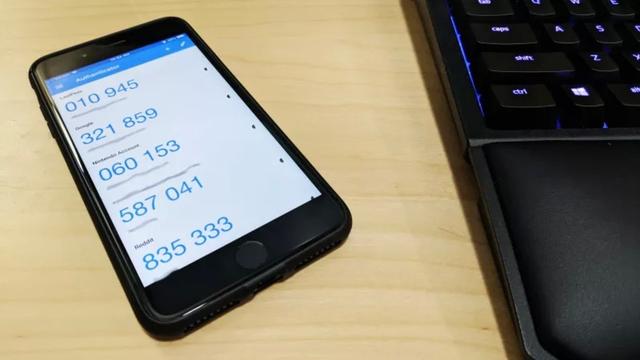Looking back on how Google worked in the turbulent 2021
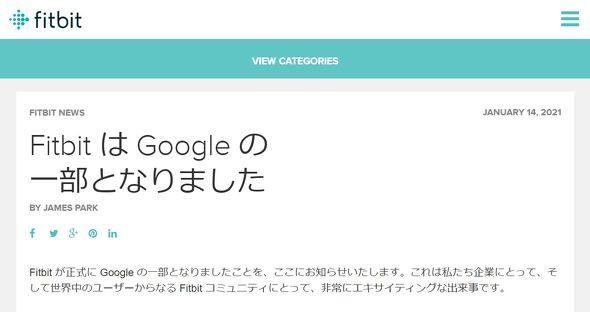
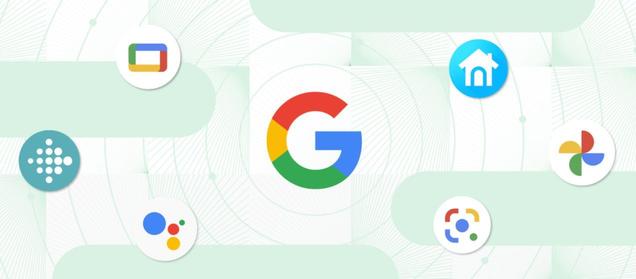
2021 was also a year covered with the new corona. Remote work has become firmly established on Google. The full reopening of offices has been extended several times, and in September it was "January 10, 2022", but in December it changed to "Judge at each office". Still, as of December, "90% of US offices have reopened and nearly 40% of US employees have gone to work." The number of Dislikes is no longer displayed. In 2021, Google released new hardware and improved the service. In "Google" at the end of this year, we will look back on Google's past year with related articles. There were many good things and unfortunate things. January: Fitbit acquisition completed, Loon disbanded CES, which is held in Las Vegas in early January every year, has become completely digital in Corona, and Google, which has a booth like an amusement park every year, also participates online. Such CES was also hazy by the attack on the Capitol on the 6th. The cause of this riot was the sharpening of Trump's supporters on SNS, and it is believed that the direct trigger was Mr. Trump's speech on the same day, "The election was stolen!". SNS platform companies have suspended Trump's account one after another, and Google has also suspended YouTube accounts (although it does not operate SNS). The Fitbit acquisition was completed in January. I expected that "Pixel Watch" will be released within this year, but it seems to be next year. There was also unfortunate news that Alphabet's Loon was disbanded. The plan was to deploy a balloon with hanging radio antennas in the stratosphere to build a wireless network, but "the road to commercial feasibility proved to be much longer and more risky than expected." It's finished. The technology developed at Loon is utilized in the wireless laser optical communication system of the "Taara Project" of another moonshot division "X". In 2022, CES was a hybrid of digital and real, and Google was planning to exhibit in real, but due to concerns about Omicron stock, we canceled real participation with Waymo. February: Chromebooks are doing well, and in the global PC market research by the dark cloud Canalys on the game service Stadia, there was a good economic story that Google's Chromebook shipments surged. Although not introduced in IT Media, it was reported in February that Chrome OS overtook macOS for the first time in IDC's full-year 2020 global PC market research. When it went on sale in 2011, I didn't expect this to happen. IDC analysts say, "Demand for Chromebooks has skyrocketed as schools were blocked by the new Corona." It seems that large purchases by schools and educational institutions have helped. On the other hand, the game streaming service "Stadia" announced in 2019 is having a difficult time. Announced the closure of the game studio in February. This service is already available in the United States, but hasn't been talked about much throughout the year. In October, the news was that AT & T adopted Stadia as the backend for delivering original games, and it turned out that Google is shifting Stadia from consumer services to the backend. March: "Nest Hub (2nd generation)" released, 3rd party cookie countermeasure "FLoC" 2021 The first hardware is the 2nd generation "Nest Hub (2nd generation)" of smart display. It is still sold for 11,000 yen. The sleep monitor function and the wake-up display are very popular, and I also use them regularly. In recent years, authorities around the world have begun to realize that IT companies are actually making a lot of money on personal data, and are moving to regulate. Of course, Google, whose revenue is mostly advertising revenue, is also the target. One of the countermeasures was announced as an API called FLoC (Federated Learning of Cohorts) based on the privacy sandbox. It claims to be effective for both individuals and advertisers without invading personal privacy, but competitors and authorities are skeptical and haven't made any progress at the end of the year. .. There was also news that the fees for developers of the Google Play Store were reduced. Again, this is a measure against criticism that Google is making too much money in the app store. Unlike Apple, Google allows sideloading (app downloads other than official apps), but it's still criticized. In March, there was also a problem that Gmail could not be opened on Android. Speaking of which, Google-related failures did not occur as often as in 2020, but since this failure was caused by WebView, it became a hot topic. Google, which provides search services around the world, is also laying submarine cables to strengthen its network. In March, we announced plans for a cable "Echo" that connects the United States and Southeast Asia in collaboration with Facebook. In 2021, we also announced "Apricot," which connects Japan and Singapore. April: Winning a 10-year Java trial with Oracle It was April when the trial with Oracle, which had been ongoing since 2010, was finally over. The case began with Oracle suing Google in August 2010 for Google's infringement of Java's copyright on Android. I went to the Supreme Court and decided that it was "fair use". When Andy Rubin decided to launch Android (as a company) in 2003 to make a smartphone and asked what programming language to use the following year, Java, JavaScript, and C ++ were the three candidates. is. Sun Microsystems, with Java rights, was still an independent company. The Sun Microsystems was acquired by Oracle in January 2010. May: Google Account Two-Step Verification Defaults The article he announced on May 6 that Google account two-step verification will be "soon" auto-registered is the second most common article I wrote this year. It was read. By the way, I couldn't confirm when the "soon" started by searching now. sorry. If you haven't set your Google account to two-step verification yet, try setting it for the year-end and New Year holidays by referring to Google's help. May is the month when the annual "Google I / O" is held. This year too, it was held online due to the influence of the new Corona. Rather than focusing on directing like Apple's WWDC, we announced mainly AI-related technologies. I was worried about the public beta release of "Android 12" and cooperation with Samsung on Wear OS. Google's "third OS" "Fuchsia" (which sounds like "fuchsia" in videos) became the OS for Nest Hub in May. It's hard for users because it doesn't look like it, but it seems that Nest Hub Max will be based on Fuchsia in December, and it's spreading unknowingly. It was the unlimited free end of Google Photos at the end of May that hit the user directly. Personally, you can pay for it, so I would like you to take care of it until the end without discontinuing the service on the way. June: "Pixel Buds A-Series" released, first real store opened The low-priced earphone "Pixel Buds A-Series" was released in June. It is also sold in Japan for 11,900 yen. The low-priced version costs more than 10,000 yen. The high-end "Pixel Buds" seems to have become a discon around July. This was 20,800 yen. It's unclear if there will be a high-end second generation. However, since we made it easier to wirelessly charge the Pixel Buds with the Pixel Stand, I would like you to continue the high-end of the wireless charging compatible case. In June, a real store where you can see such Pixel Buds A-Series in your hand opened in New York. It's on the first floor of Google's New York office building, and I think it's a place for user observation for Googlers who don't seem to have much to do with general consumers. So, unlike Apple, I don't think I'm going to open a real store in the world. In March, I wrote that "there weren't many major obstacles this year," but the biggest problem is that the Google app for Android that occurred in June repeatedly stopped. This article was the most accessed in the last year. The cause seems to be a bug in the app, and it converged in a subsequent update. July: Entered Japan's smartphone payment with the acquisition of pring, sales reached a record high even in Corona With the feeling that "Google Pay" is not being used much, Google said that it acquired Japan's mobile payment service pring There was news. There was no official announcement from Google, and there was a notice on the pring website that "pring has signed a contract for the acquisition of shares by Google. There is no change to pring's service at this time." However, the service continues as of December. As mentioned in Junya Suzuki's article, there may be service integration in a few years, but there was no relevant movement during 2021. July is the month of financial results announcement. Not only Google, but also the so-called GAFA's second quarter (April-June) all saw higher sales and profits. Partly because it was already Corona in the same period of the previous year, it is amazing that net income is the highest ever. One of the reasons was that the number of people watching YouTube due to Korona-ka increased. August: Flickering the next Pixel with "Tensor", Nest camera and doorphone released Apple and Google used to hide the information of the next flagship smartphone and the media desperately searched for it, but it was a tradition. This year's Google has released information on the "Pixel 6" scheduled to be released in October for quite some time. In August, along with the official image of this year's flagship "Pixel 6" series, the original SoC (system on chip) "Google Tensor" to be installed was also announced. In August, the Nest brand home camera and doorphone, which had been sold in the United States for some time, will be released in Japan as well. If you are an Android user, there are various useful functions and it is recommended. By the way, while the interest in "Pixel 6" was gathering, "Pixel 5a (5G)" was released in August. It's already in a state of "what was it?", But I thought it would be difficult to position each model in the Pixel series even at that time. September: Google One 5TB plan added, YouTube Music members finally exceeded 50 million At the end of Google Photos unlimited free in May, there was a voice saying "10TB is suddenly tight on 2TB with Google One plan" Perhaps it arrived, a new 5TB plan with a monthly charge of 3250 yen was established. In September, the number of paying members of the music streaming service "YouTube Music" exceeded 50 million. It is a combination of "YouTube Music Premium" and "YouTube Premium", and YouTube Premium users may not use YouTube Music very much, but 50 million people anyway. By the way, as of September, Spotify had 165 million paying members. I'm also a member of YouTube Music, but when I look at Spotify Premium, I find Spotify to be more convenient for playlists and searches. I thought it was natural that the initial settings for album playback were in the order of composition, but I learned for the first time in an article that Spotify finally did so in November. October: Pixel 6 released, Android 12 released, Android 12 L announced It was October as usual that "Pixel 6", which had lost its freshness due to Google's own frequent leaks, was released. Rick Osterlow, Senior Vice President of Hardware, introduced it at a real store in New York, which was an announcement event that Google tried to produce a little like Apple. In the United States, it seems that it is so popular that it crashes due to a flood of reservations in online stores, or it is out of stock and it is not in time for Christmas, and it offers $ 100 worth of credit as an apology. I also like the Pixel 6 Pro very much, but I don't see any users nearby so far. When I show the screen of Pixel 6 Pro to ordinary people who are not interested in smartphones, or show the pictures taken with Pixel 6 Pro, I am surprised that it is beautiful, and I am usually asked "Which smartphone?" It's a pity that you get a strange face when you answer "Google". As usual, the official version of "Android 12" was released at the same time. I wonder if Android has matured quite a bit, but there aren't many new features that are particularly surprising, but I'm grateful for practical updates such as automatic translation and "recorder". "Android 12L" announced at the end of the month is an Android OS for folding terminals and tablets scheduled to be released in early 2022. Google itself has withdrawn from the tablet, but will it release an original folding terminal? I'm also worried about the balance with Chrome OS. November: Dissatisfied with the fingerprint authentication and charging speed of the "Pixel 6", launching Everyday Robots I like the "Pixel 6", but the first in-screen fingerprint authentication of the Pixel series is a bit light. Following many complaints about that, there was an improvement update. He also said that the complaint of slow charging was dealt with in the December monthly update. This year was a year of various discussions about the harmful effects of SNS on mental health. Fortunately or unfortunately, Google is not good at SNS and does not provide services, so it is a bit of a fire on the opposite bank, but the relationship between creators and viewers on YouTube is a bit like SNS. So I decided not to display the number of "Dislike" (thumbs down icon). You can continue to click (tap) this button to optimize the viewer's preferences. As for the Google series, the robot division spun out from the moonshot division X and became a company called Everyday Robots. Personally, this is my favorite news. It seems that the practical application of robots that blend into everyday life is still ahead, but I want one while I am alive. December: Absorption of Sidewalk Labs after those who left Google Timnit Gebru, an AI ethics researcher who was dismissed from Google last December, launched a new AI laboratory, DAIR, a year later. rice field. Labor-management issues centered on Google's AI department are still ongoing, but I hope Gebble will continue to play an active role in the future. It's been a long time since I left Google, but it's good news that Hugo Barra, who was active in the announcement of Android devices, became the CEO of Detect, which handles the new corona test kit. It's going to be Barra's vocation to be close to the consumer. The resignation of Dan Doctrov, 63, CEO of Sidewalk Labs, was disappointing news. Sidewalk Labs is a Google affiliate that was launched in 2015 with the aim of developing and providing solutions to the problems of living in the city. With the resignation of Mr. Doctrov, the company will be dissolved and absorbed by Google. "I dedicate the rest of my life to prevent anyone from dying from ALS," Doctrov told Medium. It has become longer. Even with this, there are various articles that have been dropped, such as those related to security. Will "Pixel Watch" (provisional) finally appear in 2022? Or how do you participate in the Metaverse? I would like to continue to watch Google, who is interested in me. Have a great new year. * This article is a column of "Google-san", a series that slowly follows the movement of Google.
ITmedia NEWS
Last updated: ITmedia NEWS
![10th generation Core i5 equipped 9.5h drive mobile notebook is on sale at 50,000 yen level [Cool by Evo Book] 10th generation Core i5 equipped 9.5h drive mobile notebook is on sale at 50,000 yen level [Cool by Evo Book]](https://website-google-hk.oss-cn-hongkong.aliyuncs.com/drawing/article_results_9/2022/3/9/4a18d0792cae58836b71b9f591325261_0.jpeg)
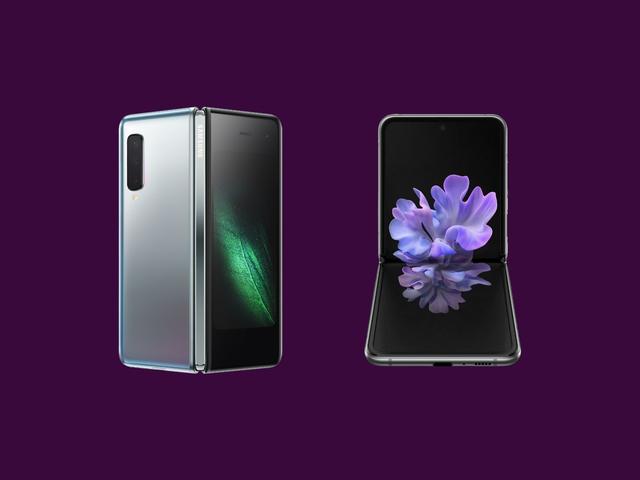

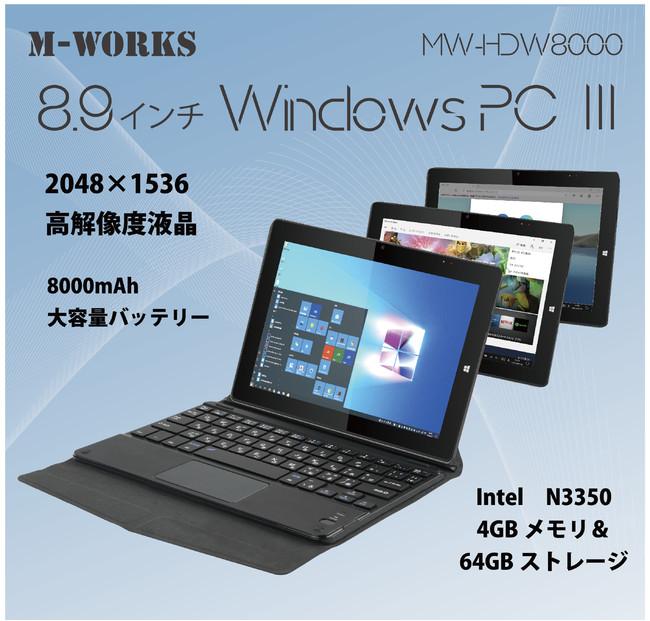
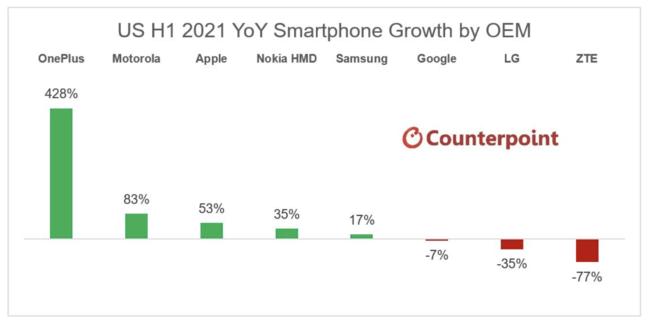
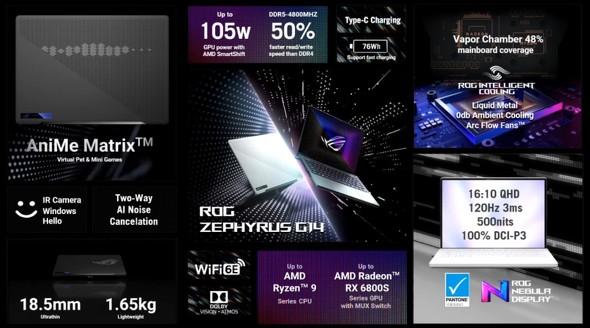
![[Amazon time sale in progress! ] 64GB microSD card of 1,266 yen and wireless earphone with noise canceling function of 52% off, etc. [Amazon time sale in progress! ] 64GB microSD card of 1,266 yen and wireless earphone with noise canceling function of 52% off, etc.](https://website-google-hk.oss-cn-hongkong.aliyuncs.com/drawing/article_results_9/2022/3/9/c88341f90bab7fe3ce1dc78d8bd6b02d_0.jpeg)
